Think that AI's main purpose is to "trigger a global nuclear war and exterminate the human species"?
Then you've been spending too much time on Wikipedia reading the plot of "The Terminator".
On the contrary, AI's main purposes are to assist humans and reduce human error. So how does it do this?
Well, it has a wide range of use cases, including automating repetitive tasks, optimising processes and enhancing decision-making.
From simply writing an email to debugging code, AI technologies like ChatGPT and Gemini are reshaping the landscape of countless sectors.
And app development is no different.
App builders leverage the technology at varying stages of the app development process to generate and test code, produce app prototypes, optimise processes and much more.
But there’s only one platform on the market that uses AI in every part of the software assembly line to create robust, custom apps. And humans still have a key role to play.
In this blog, we’ll reveal exactly what that is. But first, let’s dive into the different roles of AI in app development in more detail as well as the benefits it delivers.
Let’s get started 👇
Role of AI in app building
One of the biggest challenges in app building has always been the massive variance between the final product from the original app idea.
This ideation-to-implementation journey involves a lot of human variables, like misunderstanding the requirements, mistakes in coding and insufficient testing, which ultimately increase app development costs and lengthen the delivery timelines of an app.
This is where AI models come into play. AI can use deep learning (DL) and natural language processing (NLP) to facilitate human-like conversations and process information to inspire ideas.
Another area where AI contributes the most is tackling boring stuff through automation. Almost 66% of software projects fail, according to a report. And one of the biggest reasons for this is that businesses need apps delivered super fast, at the lowest price and of the highest quality.
AI can automate mundane, repetitive tasks, allowing developers to focus on creating needle-moving custom features. AI can also automate code generation, bug detection and testing, resulting in shorter development cycles and reduced costs while maintaining high quality.
As you can see, AI has a huge role to play in the app-building process and can benefit it in various ways. However, that’s all theory. Now, let’s take a closer look at how app builders are practically implementing the technology…
Use cases of AI in app building
Of late, there's been a surge in the integration of AI capabilities into the app-building process by numerous app development platforms. Each of these platforms uses AI differently, in whatever form they deem fit.
Some of the common approaches to leveraging AI in app building are 👇
1 - To generate code
Traditional app developers generally use AI tools to generate code snippets or even entire modules based on design specifications. This makes creating software much more efficient and reduces the likelihood of coding errors.
2 - To power front-end chatbots
Using Natural Language Processing (NLP) and Generative AI, app developers create virtual chatbots to understand user queries and respond to them in natural language.
3 - To generate content
App developers allow AI to create content within apps like text, images or other media in response to prompts. Here, the AI is used within the app rather than in the app-building process.
4 - To test the code
App developers use AI-driven testing tools to perform code tests rather than only depending on manual testing, as this can identify bugs and performance issues much more efficiently.
5 - To generate user stories
App developers leverage AI to analyse existing documentation and user feedback to generate user stories and define acceptance criteria. This can then be used to identify potential test scenarios, like specific conditions, inputs and expected outcomes.
6 - To create prototypes
App developers are using AI to generate wireframes, mockups, splash screens and other design graphics almost instantly. The technology helps to create responsive designs that adapt seamlessly to various screen sizes and resolutions.
7 - To optimise processes
App developers use AI to help determine how well an app is performing on certain tasks. Machine Learning (ML) then gives data-backed suggestions on how to improve performance.
Builder.ai is using AI to understand customer intent — or, in other words, analysing what a customer really means and wants when they ask for a software feature change. – Sachin Dev Duggal, Chief Wizard, Builder.ai
Benefits of AI in app development
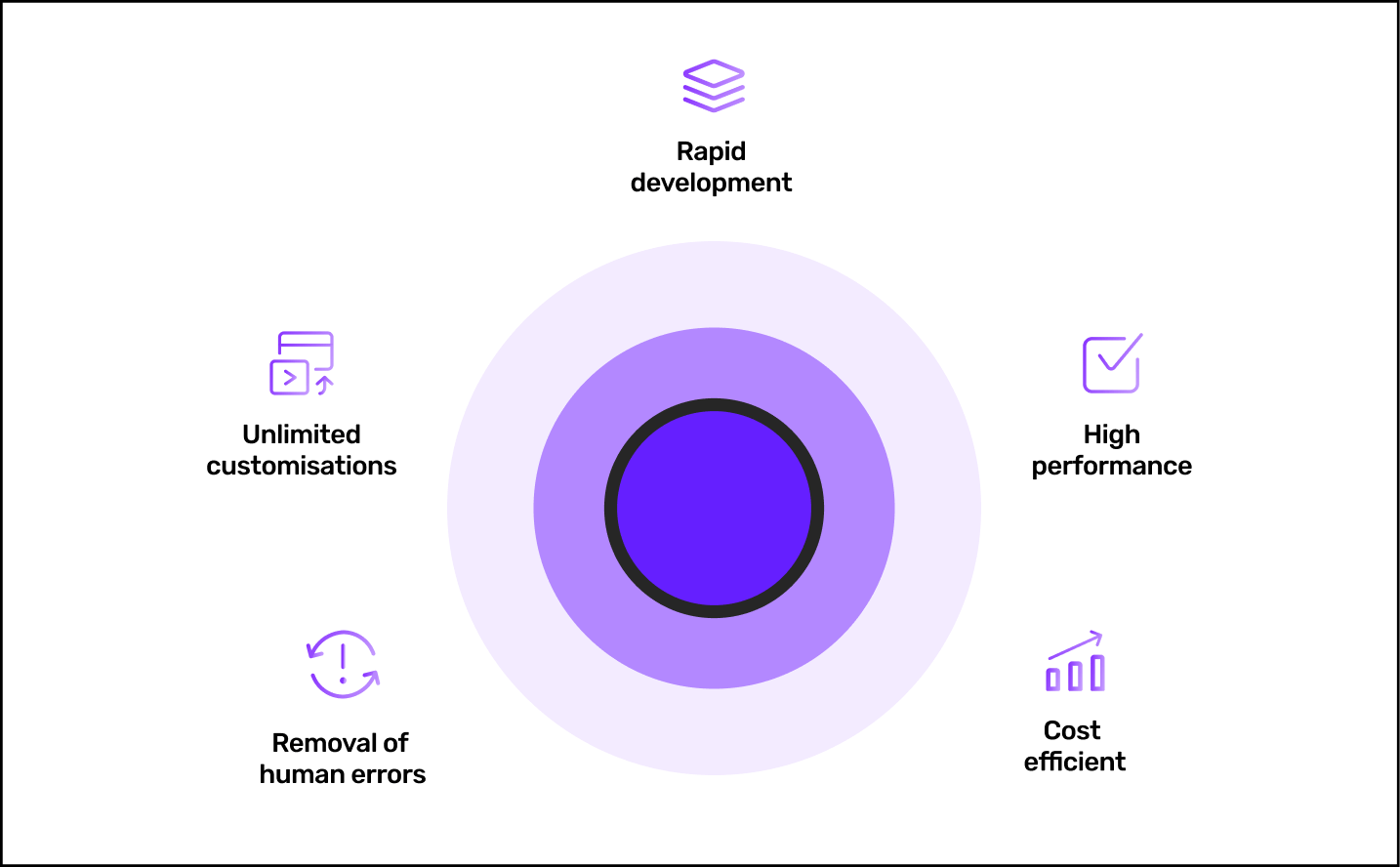
Leveraging AI in the app development process offers several advantages to your business. Some of the key benefits are:
1 - Rapid development
AI-driven app development platforms can significantly reduce the development time for your project. This is because they automate many aspects of the app-building process, like adding features based on the type of app you’re building, creating instant prototypes to help visualise your idea and testing to spot any issues.
AI app development platforms use the technology at various stages of development, resulting in rapid development and faster time-to-market for your app.
2 - Unlimited customisations
AI app development platforms like Builder.ai have pre-built customisable modules that can be integrated into your app. There’s a wide range of modular components, like user authentication, payment processing, product catalogues, social media integration and many others.
The technology also helps you customise your app’s design.
For example, your app’s user interface (UI) and user experience (UX) are automatically generated based on industry best practice, rather than being built from scratch.
3 - High performance
AI app development creates high-performance apps that load fast and have a smooth user experience. This is because AI can optimise the code generated for your app, reducing unnecessary overheads and ensuring that your app runs efficiently.
Furthermore, AI can monitor your app analytics in real-time and manage your resources effectively, ensuring memory and CPU are allocated efficiently.
4 - Cost efficient
With AI app development, you don’t need to spend as much money hiring developers to create your code from scratch, as some of the heavy lifting is done by AI. You simply choose from the library of pre-built components, and AI fits them together based on your requirements.
This slashes the amount of billable hours developers need to spend on your project, while they can also focus on making the customisations you really need.
5 - Removal of human errors
As we noted above, around 66% of software projects fail. The number 1 reason for this is that it takes many systems to build an app that all rely on humans to pass information between them.
In AI app development, code generation, code reviewing and analysis, bug detection and testing automation are handled by AI. This means human errors are significantly reduced throughout the development lifecycle, while the overall quality, efficiency and user experience of your app are enhanced.
Builder.ai wants to cut the number of people needed to make software. How? By thinking of apps as building blocks of code that can be reused and reshuffled again and again, and only using human input for final customisation. – Sachin Dev Duggal, Chief Wizard, Builder.ai
How does Builder.ai use AI differently?
Now that we’ve covered the general topic of how AI is used in app building, it’s time to get more specific about what Builder.ai has to offer.
Builder.ai uses AI and the right amount of humans to make your whole app development journey seamless. For example, it does this to:
- Provide feature recommendations
- Generate app prototypes
- Give you accurate prices and timelines
In other words, it assists you, project managers and developers at every stage of your app build.
Builder.ai uses a unique approach to leverage AI capabilities in app development. We’ve set up an “AI-powered software assembly line” using Natasha to simplify the whole app development process.
Next, let’s see who is Natasha and how she brings it all together 👇
Builder.ai is democratising access to custom software from small businesses to enterprises. Our platform is designed around the vision of build, run and scale. – Sachin Dev Duggal, Chief Wizard, Builder.ai
Natasha – The world’s first AI Product Manager
While ChatGPT and Google Gemini are very capable text-generative Artificial Intelligence, Natasha isn’t just a glorified chatbot. She does so much more.
Natasha is the world’s first AI-powered Product Manager who helps you build a wide range of apps. Using Deep Learning (DL) she can process information much like a human brain and provide inspiration and ideas that reflect business needs.
Natasha does this by using the Builder Knowledge Graph (the brain) to guide you as you conceptualise and design your app. She:
- Uses an arsenal of data and Machine Learning algorithms to offer you feature recommendations and can process; these features are organised into journeys, with each journey representing a specific goal someone using your app might have
- Creates original and realistic visuals of what an app could look like using a variety of inputs from users, including text, voice and document upload
- Splits a project into parallel streams for a faster build, selects the best developers, sets clear timelines and calculates accurate budgets; all of which was previously only possible manually
- Ensures quality of the app’s approved designs and codes; although this process still involves human testing again, it significantly reduces testing time from 2-3 weeks to 60 seconds
Ultimately, Natasha has made a time-consuming operation into a smooth, predictable and repeatable process, providing unrivalled transparency and consistency.
Natasha uses Knowledge Graph to understand what customers say and build relationships between their requirements and features to reduce human variability in the development process – Sachin Dev Duggal, Chief Wizard, Builder.ai
How does Natasha streamline your app project?
As you know, Natasha is Builder.ai’s AI product manager who assists the app development process so your projects are delivered with unparalleled transparency and consistency. Let’s learn how exactly Natasha works to streamline your app project.
Stage 1: Project scoping
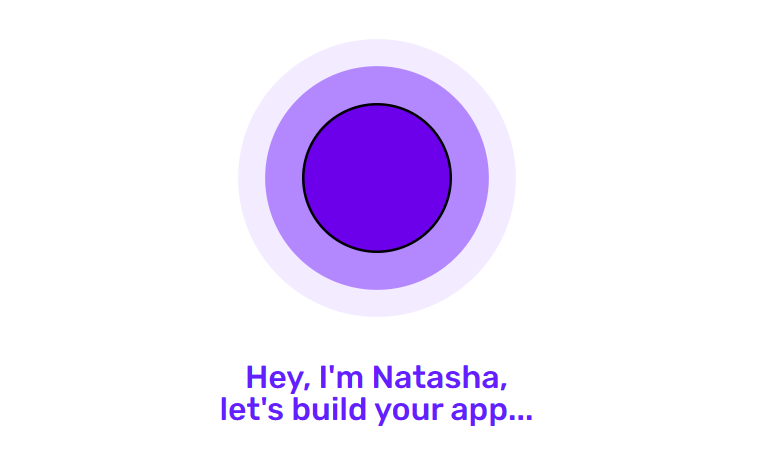
Using machine learning algorithms, Natasha recommends the features you need, based on the type of app you’re building. Natasha also creates an instant prototype for you, helping visualise your idea.
As much as 80% of the information is gathered automatically.
Stage 2: Design
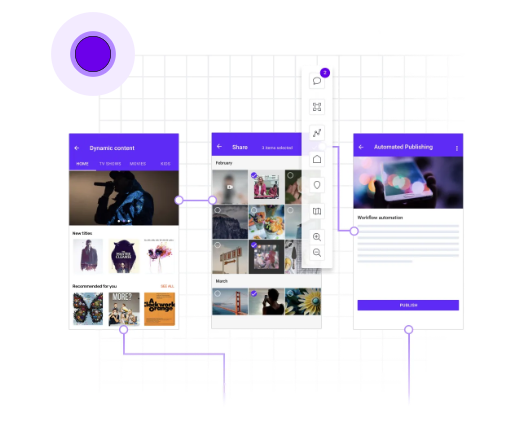
Natasha takes only 60 seconds to turn design files into front-end code, while you can see a preview of your app with your brand colour and logo instantly.
Stage 3: Development
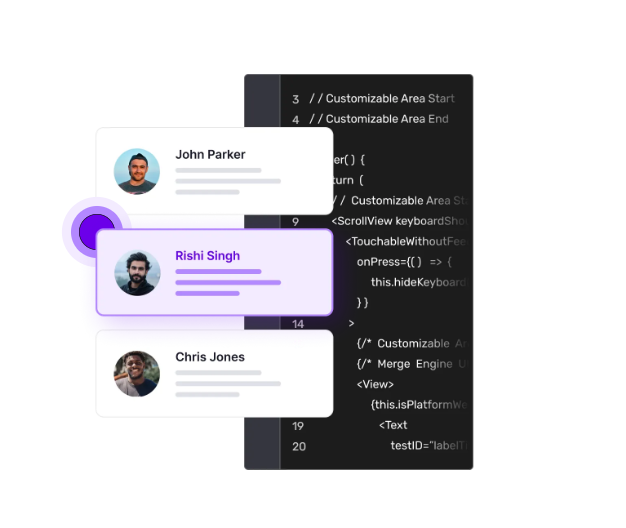
Natasha recommends the best-suited developer for your app project, who then customises your code on our virtual desktop. We also use facial recognition to check that the developer working on your code is the same one Natasha picked.
As much as 60% of the code is automated by Natasha.
Stage 4: Testing
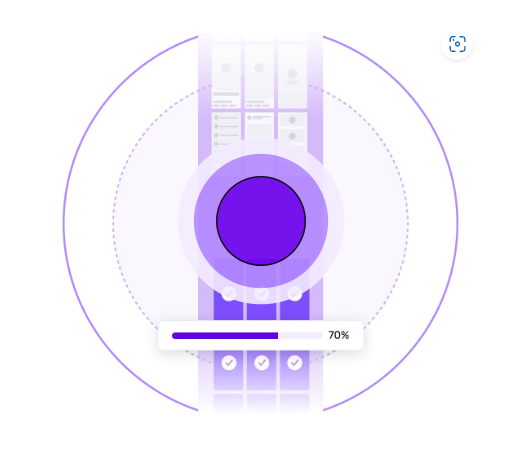
Natasha checks your approved design and code to spot any issues. Then it’s tested again by humans, improving efficiency and reducing error.
In the past, testing used to take 2-3 weeks. Natasha uses automation to test apps in 60 seconds.
Stage 5: Delivery
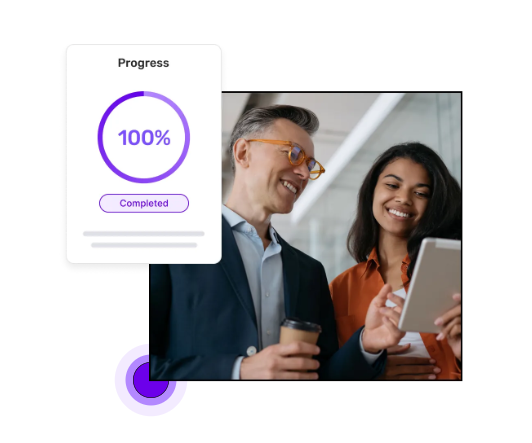
Natasha predicts potential project delays and reallocates resources as needed, so everything stays on track.
When we complete and check all your customisations and integrations, we ship the final release and source code to you. And you keep your code.
Natasha helps us achieve anexceptionally high success ratecompared to the 78% industry standard.
Builder.ai vs other AI app builders
Builder.ai | Other app developers | |
AI experience | 5+ years | 0 - 1 year |
Dedicated AI manager | Natasha - World’s first AI app building product manager | Chatbot interface or specific use cases within the apps |
Use of AI | Uses AI to streamline the whole development process and enhance user experience | Limited usage for various purposes like code or content generation, testing, or chatbots |
Development speed | Rapid development | Development speed may vary |
Flexibility | High flexibility to create simple, complex and innovative app projects | Limited flexibility |
Pricing | Guaranteed price with no hidden costs | Costs and project timelines can spiral |
Code access | The code is yours to keep | Vendor lock-in for no-code app builders; own the code with dev agencies |
An important thing to emphasise when comparing Builder.ai to other AI app builders is the nature of artificial intelligence itself.
This technology develops its intelligence by learning from mistakes, just like a child. This means it’s not something you can build overnight. Instead, it needs more time, more expertise and infinitely more patience.
In this context, Natasha already has up to five years’ worth of data to draw upon. And for that period, she’s been listening to client ideas, suggesting features, working with developers on multitudes of projects, designing prototypes, testing and debugging software and most of all, learning every day.
Most other AI app builders are under a year old, meaning they’re playing catchup, as a result.
Aside from Builder.ai, no other app builder can provide you with clear timelines or pricing as they don’t have the knowledge themselves. On the other hand, Natasha gives you a guaranteed timeline and price in the first meeting itself, with no hidden costs.
What’s more? Builder.ai promises that you keep your code after your payment plan is complete, unlike other app builders who typically operate on unscalable vendor lock-in models.
Ultimately, while Builder.ai isn’t the only AI app builder, it certainly has the most pedigree.
How to create an app with AI: Builder Studio
1 - Chat to our AI, Natasha
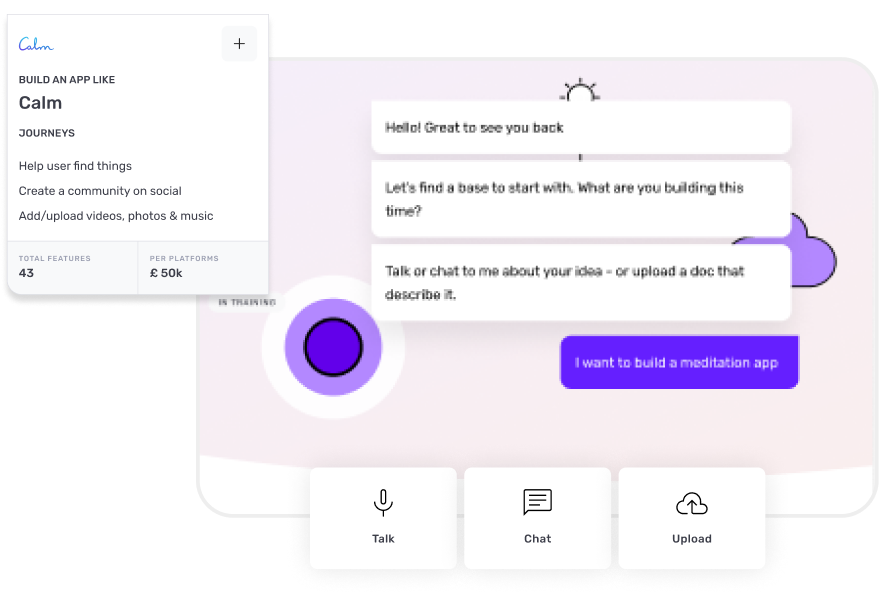
She asks about your idea and offers recommendations (based on every app we’ve ever built).
2 - Get a fixed price and accurate timelines
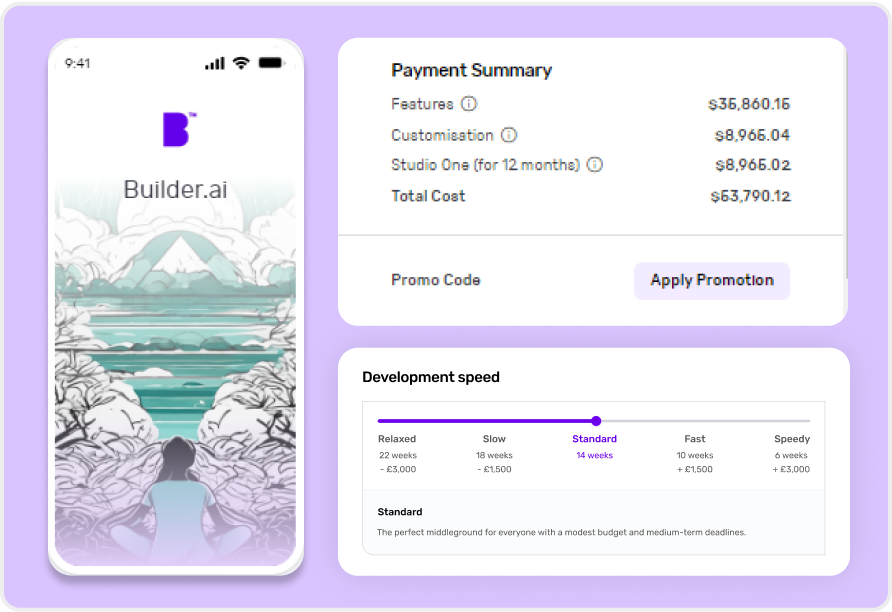
We’re so confident in Natasha’s predictions that we can guarantee your price upfront.
3 - Meet your own dedicated expert
They project manage everything for you, right through to a successful launch.
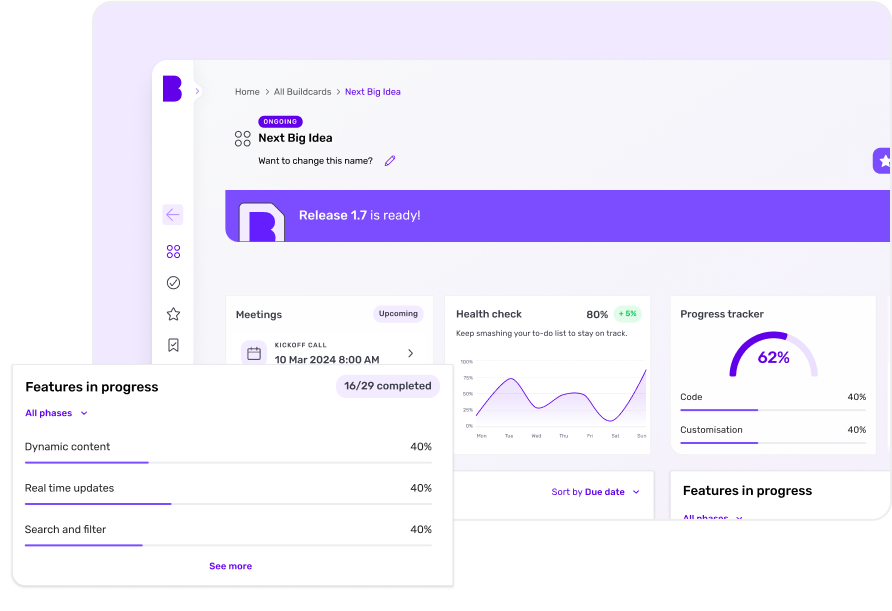
4 - AI assembles your app features like a LEGO set
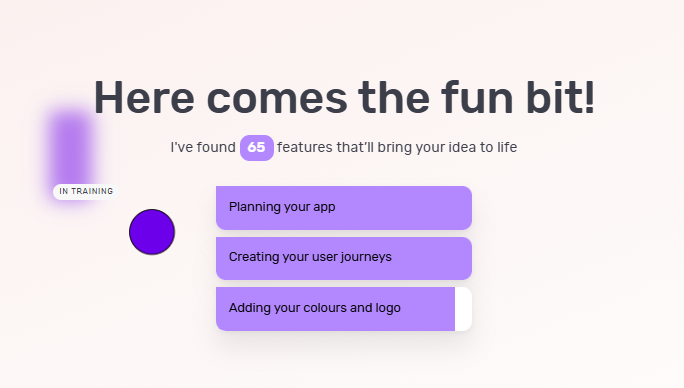
Choose from our library of 600+ features and we can create any custom ones you need.
5 - Features are customised by human specialists
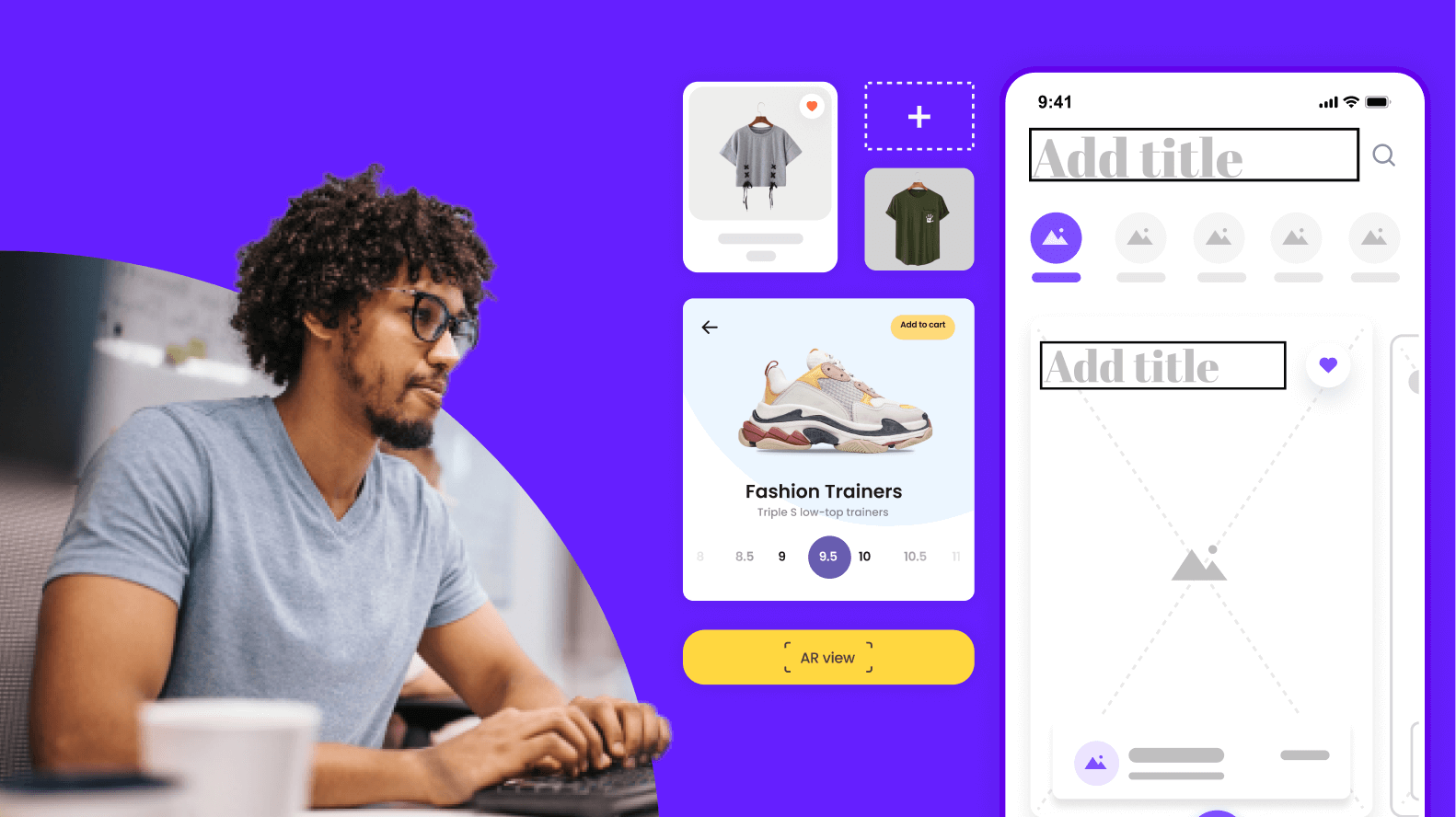
Natasha finds the best designers and developers (she’s tested them all) for each task.
6 - Your app is ready
It’s checked by AI and humans – and includes 1 year of Studio One, which keeps your app updated and protected.
Conclusion
If you’re looking to create an app using only AI and zero human involvement, then I have both good and bad news for you.
First, the bad news – it’s not possible.
The good news is that this is precisely how we intend it to be. Let's take the example of self-driving cars. We certainly don’t want drivers to doze off behind the wheel in a self-driving car; rather, we expect them to be alert and not crash.
Similarly, when it comes to creating apps, we want just the right amount of human touch to keep the app-building process from crashing and at the same time, we want the perfect blend of AI assistance along the way to speed up the process while maintaining the highest quality and standards.
Building an app using Builder.ai’s Natasha is a harmonious collaboration between human vision and AI precision that makes your app-building journey productive and enjoyable.
If this sounds good, then let's have a chat and discuss how Builder.ai can create your dream app using Natasha and get it up and running in less than two weeks.
If that sounds good, hit the banner below and see how AI can help you create your dream app 👇
Want to start your app project with us?
Book a demoSpeak with one of our product experts today.
By proceeding you agree to Builder.ai’s privacy policy and terms and conditions

Entrepreneurial senior management executive of fast growing technology businesses. Successful in taking ideas from concept to profitability, using a blend of lean, agile and rapid result methodologies. A background in building and managing cross-functional and hybrid teams, with a record for retaining talented individuals and delivering results. Skilled in developing and maintaining a clear product and project vision, strategy and roadmap. Willing and able to adapt to changing environments. Often named as a Crisis Manager with a vision to “Make Things Happen”.




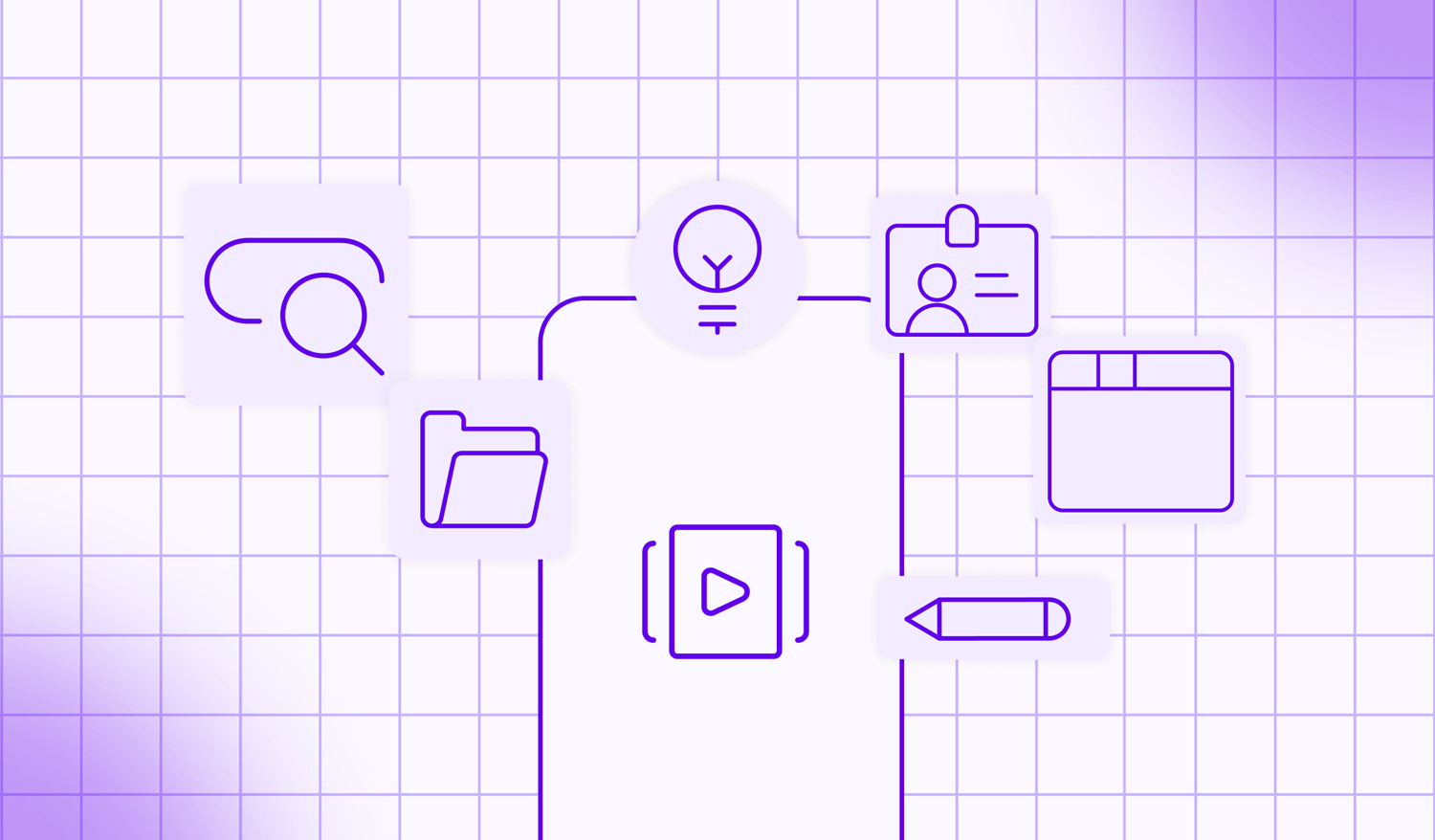
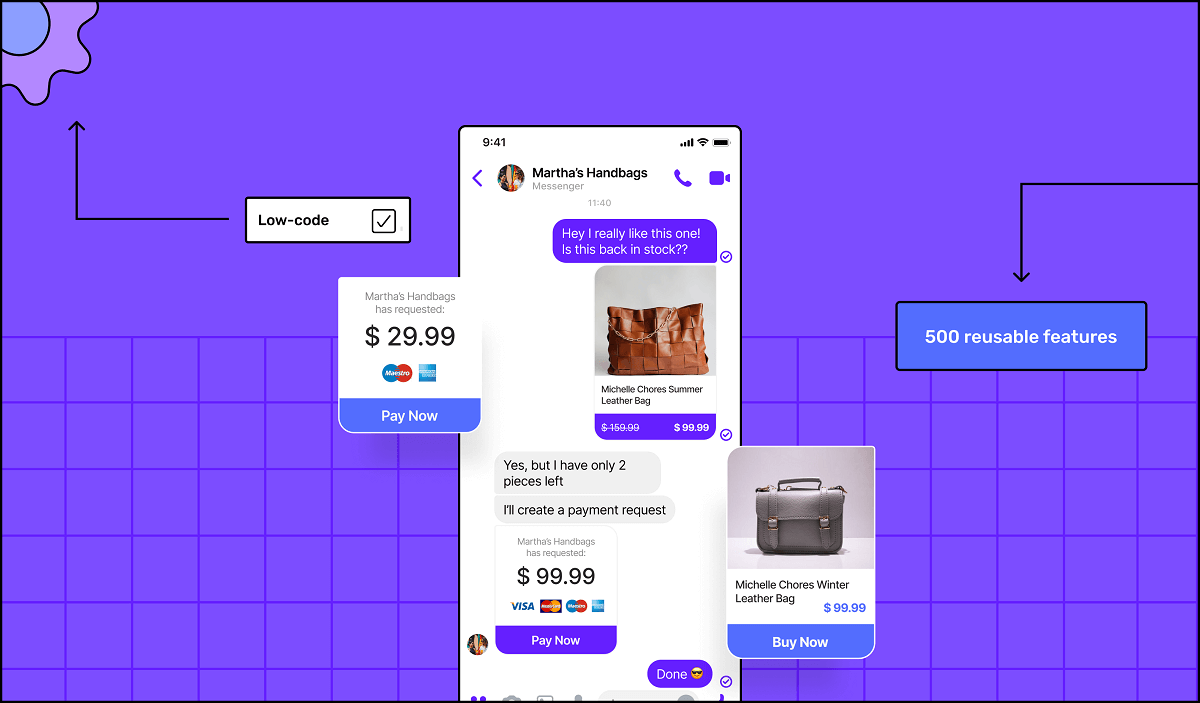







 Facebook
Facebook X
X LinkedIn
LinkedIn YouTube
YouTube Instagram
Instagram RSS
RSS


